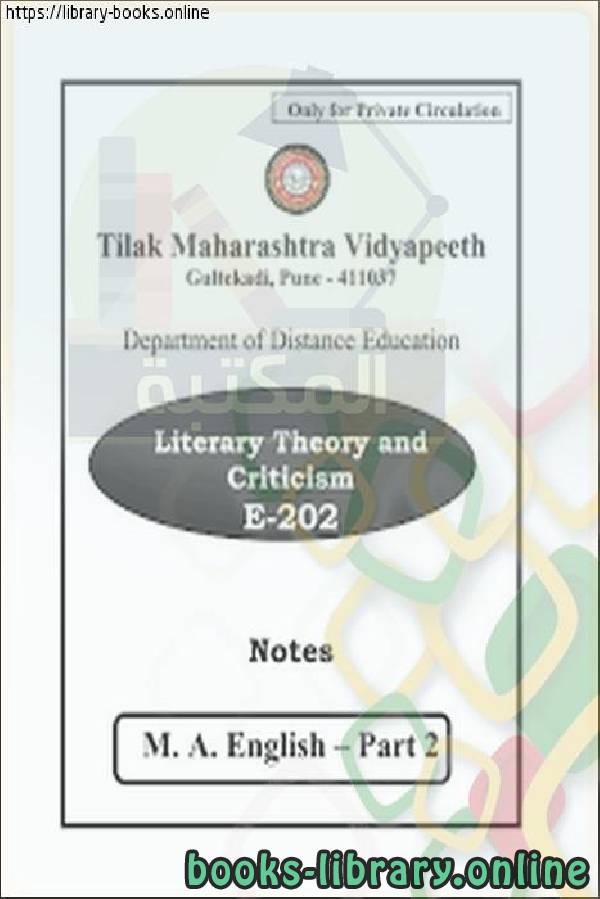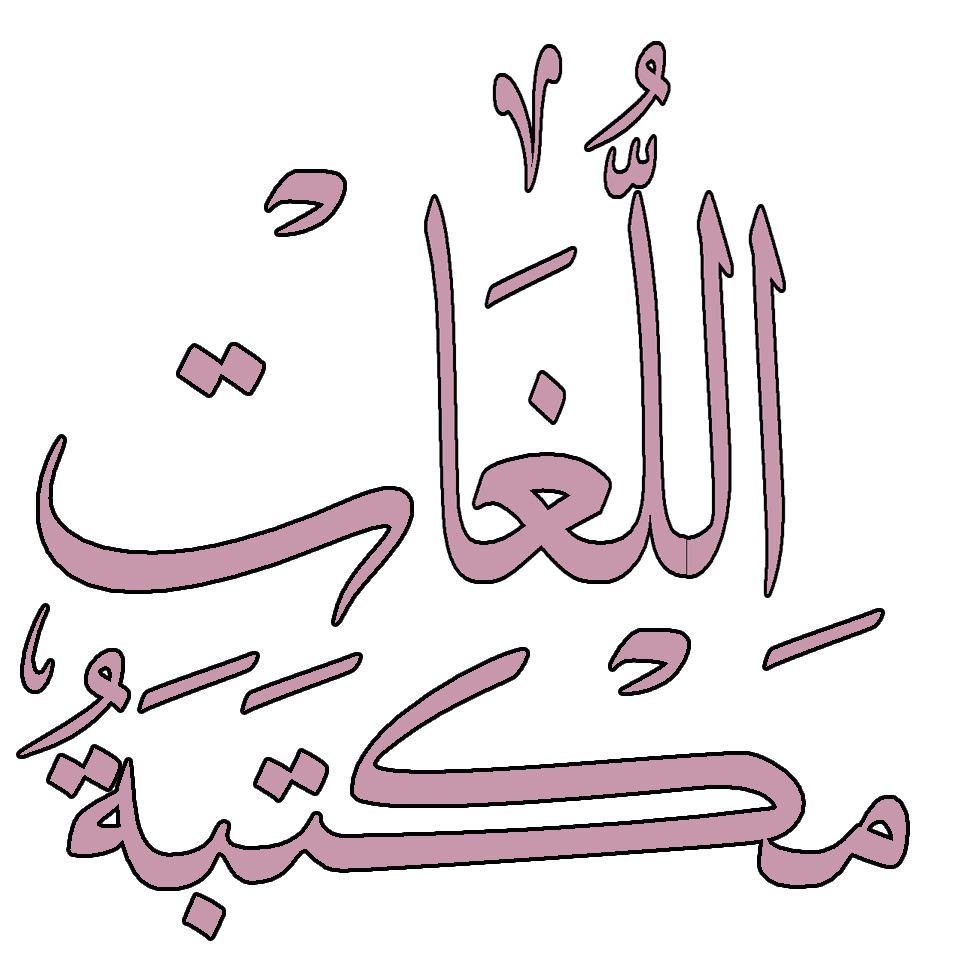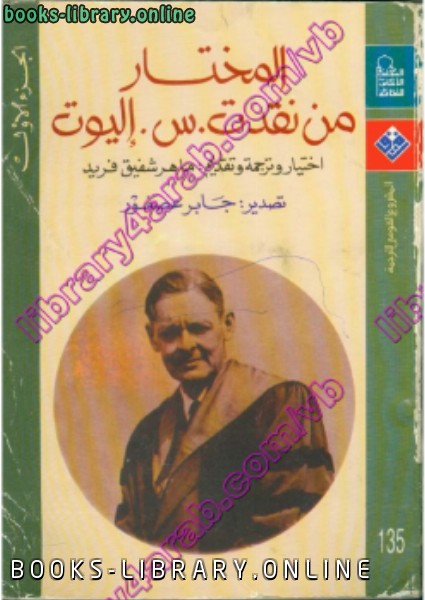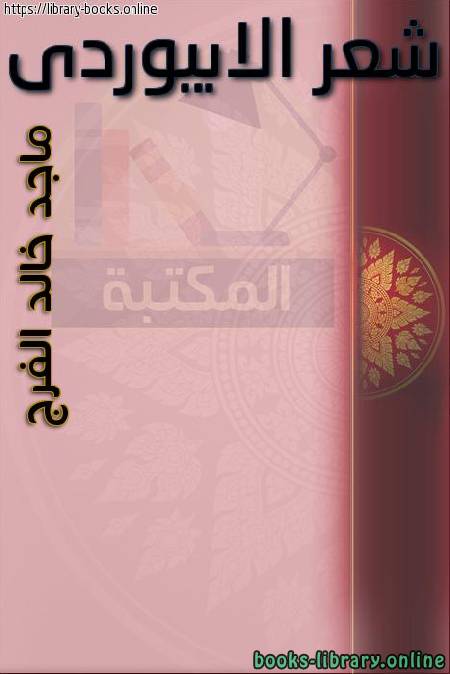كتاب Literary Theory and Criticism
Tilak Maharashtra Vidyapeeth Gultekadi, Pune - 411037 Department of Distance Education Literary INTRODUCTION The scope of the Distance Education System is unlimited. It has opened avenues of higher education for those who had been denied the opportunity. In the present era when constant updating is the need of the hour, Distance Education is doing wonders with the fast developing communication technology. Although the students are at distance, a complete learning experience is provided to them through the Self Learning Material, developed by our expert faculty. We are very happy to hand over to you learning material of M.A. - English for Part II. This year our thrust areas are - 1. Literary contribution of a great British author William Shakespeare as a special author 2. Contribution of American authors in modern times, 3. Selective English literature of a few Indian authors and 4. A very interesting, but analytical field of Literary Theory and Criticism. We are sure that you will find this learning material useful as a base for your studies and as a guideline from the examination point of view, too. More over we hope that this material would arose in you interest for further reading of American and Indian literature, in writings of William Shakespeare other than the ones prescribed in the syllabus and would develop in you a critical approach towards literature. We take this opportunity to express our gratitude towards Hon'ble Vice-chancellor Dr. Deepak Tilak, Dean - Faculty of Distance Education Shri. Ratnakar Chandekar and the Registrar Dr. Umesh Keskar for encouragement, support and guidance provided by them. We are thankful to Prof. Vishnu Abhyankar for preparation of this study material. Wish you all the best! Prof. Neelima Mehta Head, Faculty of Distance Education Literary Theory and Criticism Content Sr. No Chapter Page No 1 Nature and Function of Literary Criticism 01 2 Aristotle : A Greek Classical Critic – The Poetics 11 3 Sir Philip Sidney : An Apology for Poetry 25 4 Johnson : Preface of Shakespeare 35 5 Wordsworth : A Preface to Lyrical Ballads 45 6 Matthew Arnold : Essays 54 7 T.S. Eliot : Criticism 62 8 F.R. Leavies : Literature and Society 71 9 Northrop Frye : The Archy types of Literature 76 10 Ronald Barthes : The Death of the Author 80 11 Elain Showalter : A Feminist Criticism ( A Short Note ) 83 12 Modern Critical Theory 88 Conclusion 93 Question Bank 94 CHAPTER – I Nature and Function of Literary Criticism CRITICISM :Neelima Mehta Head - ❰ له مجموعة من الإنجازات والمؤلفات أبرزها ❞ Literary Theory and Criticism ❝ ❱
من النقد الأدبي Literary criticism كتب تعلم اللغة الإنجليزية - مكتبة كتب تعلم اللغات.

قراءة كتاب Literary Theory and Criticism أونلاين
معلومات عن كتاب Literary Theory and Criticism:
Tilak Maharashtra Vidyapeeth
Gultekadi, Pune - 411037
Department of Distance Education
Literary
INTRODUCTION
The scope of the Distance Education System is unlimited. It has opened avenues of higher education for those who had been denied the opportunity. In the present era when constant updating is the need of the hour, Distance Education is doing wonders with the fast developing communication technology. Although the students are at distance, a complete learning experience is provided to them through the Self Learning Material, developed by our expert faculty. We are very happy to hand over to you learning material of M.A. - English for Part II. This year our thrust areas are - 1. Literary contribution of a great British author William Shakespeare as a special author 2. Contribution of American authors in modern times, 3. Selective English literature of a few Indian authors and 4. A very interesting, but analytical field of Literary Theory and Criticism. We are sure that you will find this learning material useful as a base for your studies and as a guideline from the examination point of view, too. More over we hope that this material would arose in you interest for further reading of American and Indian literature, in writings of William Shakespeare other than the ones prescribed in the syllabus and would develop in you a critical approach towards literature. We take this opportunity to express our gratitude towards Hon'ble Vice-chancellor Dr. Deepak Tilak, Dean - Faculty of Distance Education Shri. Ratnakar Chandekar and the Registrar Dr. Umesh Keskar for encouragement, support and guidance provided by them. We are thankful to Prof. Vishnu Abhyankar for preparation of this study material. Wish you all the best! Prof. Neelima Mehta Head, Faculty of Distance Education
Literary Theory and Criticism Content
Sr. No
Chapter
Page No
1
Nature and Function of Literary Criticism
01
2
Aristotle : A Greek Classical Critic – The Poetics
11
3
Sir Philip Sidney : An Apology for Poetry
25
4
Johnson : Preface of Shakespeare
35
5
Wordsworth : A Preface to Lyrical Ballads
45
6
Matthew Arnold : Essays
54
7
T.S. Eliot : Criticism
62
8
F.R. Leavies : Literature and Society
71
9
Northrop Frye : The Archy types of Literature
76
10
Ronald Barthes : The Death of the Author
80
11
Elain Showalter : A Feminist Criticism ( A Short Note )
83
12
Modern Critical Theory
88
Conclusion
93
Question Bank
94
CHAPTER – I
Nature and Function of Literary Criticism
CRITICISM :
سنة النشر : 2002م / 1423هـ .
عدد مرات التحميل : 6388 مرّة / مرات.
تم اضافته في : الثلاثاء , 31 ديسمبر 2019م.
حجم الكتاب عند التحميل : 0.8MB .
تعليقات ومناقشات حول الكتاب:
هذا القسم يحتوي علي كل ما يتعلق بالنقد الأدبي.
النقد الأدبي دراسة ونقاش وتقييم وتفسير الأدب. يعتمد النقد الأدبي الحديث غالبا على النظرية الأدبية وهي النقاش الفلسفي لطرق النقد الأدبي وأهدافه، ورغم العلاقة بينهما فإن النقاد الأدبيين ليسوا دوما منظرين.
هو فن تفسير الأعمال الأدبية، وهو محاولة منضبطة يشترك فيها ذوق الناقد وفكره ،للكشف عن مواطن الجمال أو القبح في الأعمال الأدبية. والأدب سابق للنقد في الظهور، ولولا وجود الأدب لما كان هناك نقد أدبي لأن قواعده مستقاة ومستنتجة من دراسة الأدب ،إن الناقد ينظر في النصوص الأد بية شعرية كانت أو نثرية ثم يأخذ الكشف عن مواطن الجمال والقبح فيها معللاً مايقولة ومحاولاً أن يثير في نفوسنا شعور بأن ما يقوله صحيح وأقصى ما يطمح إليه النقد الأدبي، لأنه لن يستطيع أبداً أن يقدم لنا برهاناً علميا يقيناً. ولذا لا يوجد عندنا نقد أدبي صائب وآخر خاطئ وإنما يوجد نقد أدبي أكثر قدرة على تأويل العمل الفني وتفسيره من غيره واختلاف مناهج النقد معناه اختلاف في وجهات النظر.والذوق هو المرجع الأول في الحكم على الأدب والفنون لأنه أقرب الموازين والمقاييس إلى طبيعتها، ولكن الذوق الجدير بالاعتبار هو الذوق المصقول لذوق الناقد الذي يستطيع أن يكبح جماح هواه الخاص الذي قد يجافي في الصواب ،الخبير بالأدب الذي راضه ومارسه، وتخصص في فهمه ودرس أساليب الأدباء ومنح القدرة على فهم أسرارهم والنفوذ إلى دخائلهم وادراك مشاعرهم وسبر عواطفهم، بفهمه العميق وحسه المرهف وكثرة تجاربه الأدبية لذلك لابد أن يتمتع الناقدبعدة صفات منها:
قدر وافر من المعرفة والثقافة
البصر الثاقب الذي يكون خير معين له على إصدار الحكم الصائب
فالأدب ونقده ذوق وفن ،قبل أن يكون معرفة وعلما وان كانت المعرفة تعين صاحب الحس المرهف والذوق السليم والطبع .
Literary criticism (or literary studies) is the study, evaluation, and interpretation of literature. Modern literary criticism is often influenced by literary theory, which is the philosophical discussion of literature's goals and methods. Though the two activities are closely related, literary critics are not always, and have not always been, theorists.
Whether or not literary criticism should be considered a separate field of inquiry from literary theory, or conversely from book reviewing, is a matter of some controversy. For example, the Johns Hopkins Guide to Literary Theory and Criticism[1] draws no distinction between literary theory and literary criticism, and almost always uses the terms together to describe the same concept. Some critics consider literary criticism a practical application of literary theory, because criticism always deals directly with particular literary works, while theory may be more general or abstract.
Literary criticism is often published in essay or book form. Academic literary critics teach in literature departments and publish in academic journals, and more popular critics publish their reviews in broadly circulating periodicals such as The Times Literary Supplement, The New York Times Book Review, The New York Review of Books, the London Review of Books, the Dublin Review of Books, The Nation, Bookforum, and The New Yorker.
Contents
1 History
1.1 Classical and medieval criticism
1.2 Renaissance criticism
1.3 Enlightenment criticism
1.4 19th-century Romantic criticism
1.5 The New Criticism
1.6 Theory
1.7 History of the book
1.8 Current state
2 Value of academic criticism
3 Key texts
3.1 The Classical and medieval periods
3.2 The Renaissance period
3.3 The Enlightenment period
3.4 The 19th century
3.5 The 20th century
Classical and medieval criticism
Literary criticism is thought to have existed as long as literature. In the 4th century BC Aristotle wrote the Poetics, a typology and description of literary forms with many specific criticisms of contemporary works of art. Poetics developed for the first time the concepts of mimesis and catharsis, which are still crucial in literary studies. Plato's attacks on poetry as imitative, secondary, and false were formative as well. The Sanskrit Natya Shastra includes literary criticism on ancient Indian literature and Sanskrit drama.
Later classical and medieval criticism often focused on religious texts, and the several long religious traditions of hermeneutics and textual exegesis have had a profound influence on the study of secular texts. This was particularly the case for the literary traditions of the three Abrahamic religions: Jewish literature, Christian literature and Islamic literature.
Literary criticism was also employed in other forms of medieval Arabic literature and Arabic poetry from the 9th century, notably by Al-Jahiz in his al-Bayan wa-'l-tabyin and al-Hayawan, and by Abdullah ibn al-Mu'tazz in his Kitab al-Badi.
Renaissance criticism
The literary criticism of the Renaissance developed classical ideas of unity of form and content into literary neoclassicism, proclaiming literature as central to culture, entrusting the poet and the author with preservation of a long literary tradition. The birth of Renaissance criticism was in 1498, with the recovery of classic texts, most notably, Giorgio Valla's Latin translation of Aristotle's Poetics. The work of Aristotle, especially Poetics, was the most important influence upon literary criticism until the late eighteenth century. Lodovico Castelvetro was one of the most influential Renaissance critics who wrote commentaries on Aristotle's Poetics in 1570.
Enlightenment criticism
In the Enlightenment period (1700s to 1800s), literary criticism became more popular. During this time period literacy rates started to rise in the public; no longer was reading exclusive for the wealthy or scholarly. With the rise of the literate public and swiftness of printing, criticism arose too. Reading was no longer viewed solely as educational or as a sacred source of religion; it was a form of entertainment. Literary criticism was influenced by the values and stylistic writing, including clear, bold, precise writing and the more controversial criteria of the author's religious beliefs. These critical reviews were published in many magazines, newspapers, and journals. Many works of Jonathan Swift were criticized including his book Gulliver's Travels, which one critic described as "the detestable story of the Yahoos".
19th-century Romantic criticism
The British Romantic movement of the early nineteenth century introduced new aesthetic ideas to literary studies, including the idea that the object of literature need not always be beautiful, noble, or perfect, but that literature itself could elevate a common subject to the level of the sublime. German Romanticism, which followed closely after the late development of German classicism, emphasized an aesthetic of fragmentation that can appear startlingly modern to the reader of English literature, and valued Witz – that is, "wit" or "humor" of a certain sort – more highly than the serious Anglophone Romanticism. The late nineteenth century brought renown to authors known more for their literary criticism than for their own literary work, such as Matthew Arnold.
The New Criticism
However important all of these aesthetic movements were as antecedents, current ideas about literary criticism derive almost entirely from the new direction taken in the early twentieth century. Early in the century the school of criticism known as Russian Formalism, and slightly later the New Criticism in Britain and in the United States, came to dominate the study and discussion of literature, in the English-speaking world. Both schools emphasized the close reading of texts, elevating it far above generalizing discussion and speculation about either authorial intention (to say nothing of the author's psychology or biography, which became almost taboo subjects) or reader response. This emphasis on form and precise attention to "the words themselves" has persisted, after the decline of these critical doctrines themselves.
Theory
In 1957 Northrop Frye published the influential Anatomy of Criticism. In his works Frye noted that some critics tend to embrace an ideology, and to judge literary pieces on the basis of their adherence to such ideology. This has been a highly influential viewpoint among modern conservative thinkers. E. Michael Jones, for example, argues in his Degenerate Moderns that Stanley Fish was influenced by his adulterous affairs to reject classic literature that condemned adultery.[5] Jürgen Habermas in Erkenntnis und Interesse [1968] (Knowledge and Human Interests), described literary critical theory in literary studies as a form of hermeneutics: knowledge via interpretation to understand the meaning of human texts and symbolic expressions—including the interpretation of texts which themselves interpret other texts.
In the British and American literary establishment, the New Criticism was more or less dominant until the late 1960s. Around that time Anglo-American university literature departments began to witness a rise of a more explicitly philosophical literary theory, influenced by structuralism, then post-structuralism, and other kinds of Continental philosophy. It continued until the mid-1980s, when interest in "theory" peaked. Many later critics, though undoubtedly still influenced by theoretical work, have been comfortable simply interpreting literature rather than writing explicitly about methodology and philosophical presumptions.
History of the book
Related to other forms of literary criticism, the history of the book is a field of interdisciplinary inquiry drawing on the methods of bibliography, cultural history, history of literature, and media theory. Principally concerned with the production, circulation, and reception of texts and their material forms, book history seeks to connect forms of textuality with their material aspects.
Among the issues within the history of literature with which book history can be seen to intersect are: the development of authorship as a profession, the formation of reading audiences, the constraints of censorship and copyright, and the economics of literary form.
Current state
Today, interest in literary theory and continental philosophy coexists in university literature departments with a more conservative literary criticism of which the New Critics would probably have approved. Disagreements over the goals and methods of literary criticism, which characterized both sides taken by critics during the "rise" of theory, have declined. Many critics feel that they now have a great plurality of methods and approaches from which to choose.[citation needed]
Some critics work largely with theoretical texts, while others read traditional literature; interest in the literary canon is still great, but many critics are also interested in minority and women's literature, as elaborated on by certain academic journals such as Contemporary Women's Writing,[6] while some critics influenced by cultural studies read popular texts like comic books or pulp/genre fiction. Ecocritics have drawn connections between literature and the natural sciences. Darwinian literary studies studies literature in the context of evolutionary influences on human nature. And postcritique has sought to develop new ways of reading and responding to literary texts that go beyond the interpretive methods of critique. Many literary critics also work in film criticism or media studies. Some write intellectual history; others bring the results and methods of social history to bear on reading literature.[citation needed]
Value of academic criticism
The value of extensive literary analysis has been questioned by several prominent artists. Vladimir Nabokov once wrote that good readers do not read books, and particularly those which are considered to be literary masterpieces, "for the academic purpose of indulging in generalizations". Terry Eagleton attributes an unsung stature to literary critics and to criticism in academia. He believes that critics are not so well-known and praised, to his disappointment, and that literary criticism is declining in its value because of the manner the general audience is directing it towards that underappreciated state. At a 1986 Copenhagen conference of James Joyce scholars, Stephen J. Joyce (the modernist writer's grandson) said, "If my grandfather was here, he would have died laughing ... Dubliners and A Portrait of the Artist as a Young Man can be picked up, read, and enjoyed by virtually anybody without scholarly guides, theories, and intricate explanations, as can Ulysses, if you forget about all the hue and cry." He later questioned whether anything has been added to the legacy of Joyce's art by the 261 books of literary criticism stored in the Library of Congress
Tilak Maharashtra Vidyapeeth
Gultekadi, Pune - 411037
Department of Distance Education
Literary
INTRODUCTION
The scope of the Distance Education System is unlimited. It has opened avenues of higher education for those who had been denied the opportunity. In the present era when constant updating is the need of the hour, Distance Education is doing wonders with the fast developing communication technology. Although the students are at distance, a complete learning experience is provided to them through the Self Learning Material, developed by our expert faculty. We are very happy to hand over to you learning material of M.A. - English for Part II. This year our thrust areas are - 1. Literary contribution of a great British author William Shakespeare as a special author 2. Contribution of American authors in modern times, 3. Selective English literature of a few Indian authors and 4. A very interesting, but analytical field of Literary Theory and Criticism. We are sure that you will find this learning material useful as a base for your studies and as a guideline from the examination point of view, too. More over we hope that this material would arose in you interest for further reading of American and Indian literature, in writings of William Shakespeare other than the ones prescribed in the syllabus and would develop in you a critical approach towards literature. We take this opportunity to express our gratitude towards Hon'ble Vice-chancellor Dr. Deepak Tilak, Dean - Faculty of Distance Education Shri. Ratnakar Chandekar and the Registrar Dr. Umesh Keskar for encouragement, support and guidance provided by them. We are thankful to Prof. Vishnu Abhyankar for preparation of this study material. Wish you all the best! Prof. Neelima Mehta Head, Faculty of Distance Education
Literary Theory and Criticism Content
Sr. No
Chapter
Page No
1
Nature and Function of Literary Criticism
01
2
Aristotle : A Greek Classical Critic – The Poetics
11
3
Sir Philip Sidney : An Apology for Poetry
25
4
Johnson : Preface of Shakespeare
35
5
Wordsworth : A Preface to Lyrical Ballads
45
6
Matthew Arnold : Essays
54
7
T.S. Eliot : Criticism
62
8
F.R. Leavies : Literature and Society
71
9
Northrop Frye : The Archy types of Literature
76
10
Ronald Barthes : The Death of the Author
80
11
Elain Showalter : A Feminist Criticism ( A Short Note )
83
12
Modern Critical Theory
88
Conclusion
93
Question Bank
94
CHAPTER – I
Nature and Function of Literary Criticism
CRITICISM :
Literary criticism
literary criticism summary
literary criticism theories
literary criticism pdf
literary criticism approaches
traditional literary criticism
introduction to literary theory
literary theories summary
one literary theory
Literary
literary devices
literary traduction
literally meaning
criticism
types of criticism
criticism in literature
criticism synonym
criticism traduction
criticism quotes
criticism en francais
criticism plural
criticise
of criticism
 مهلاً !
مهلاً !قبل تحميل الكتاب .. يجب ان يتوفر لديكم برنامج تشغيل وقراءة ملفات pdf
يمكن تحميلة من هنا 'تحميل البرنامج'

نوع الكتاب : pdf.
اذا اعجبك الكتاب فضلاً اضغط على أعجبني و يمكنك تحميله من هنا:


كتب اخرى في النقد الأدبي Literary criticism
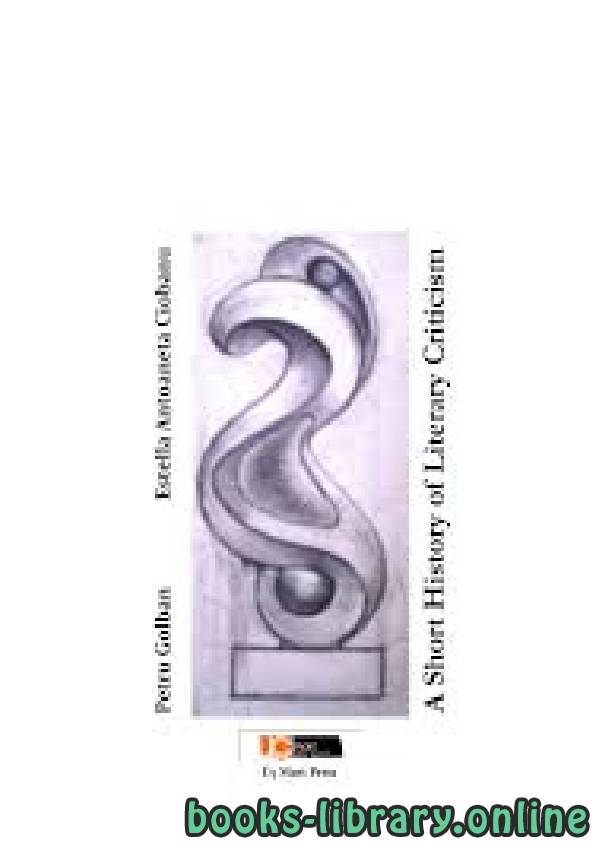
A Short History of Literary Criticism PDF
قراءة و تحميل كتاب A Short History of Literary Criticism PDF مجانا
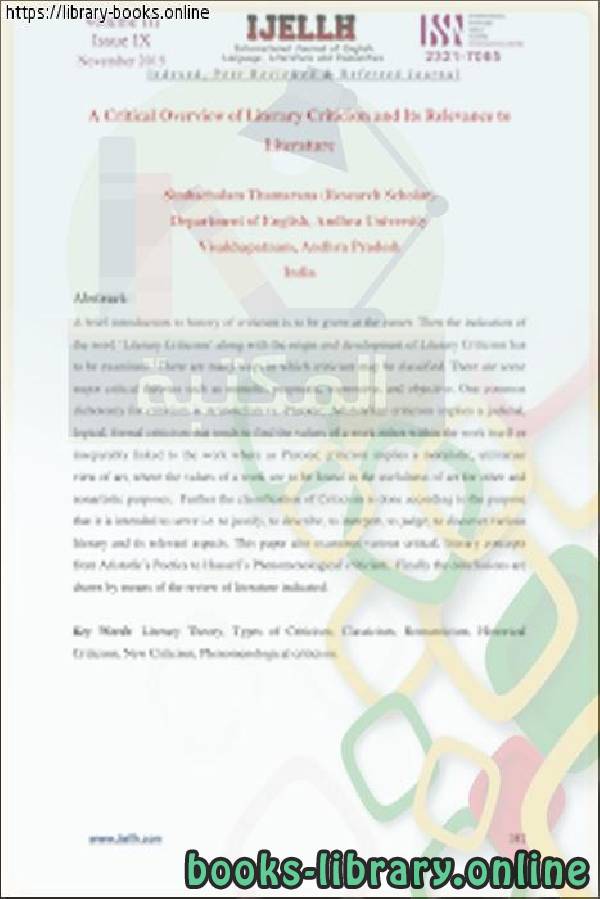
A Critical Overview of Literary Criticism PDF
قراءة و تحميل كتاب A Critical Overview of Literary Criticism PDF مجانا
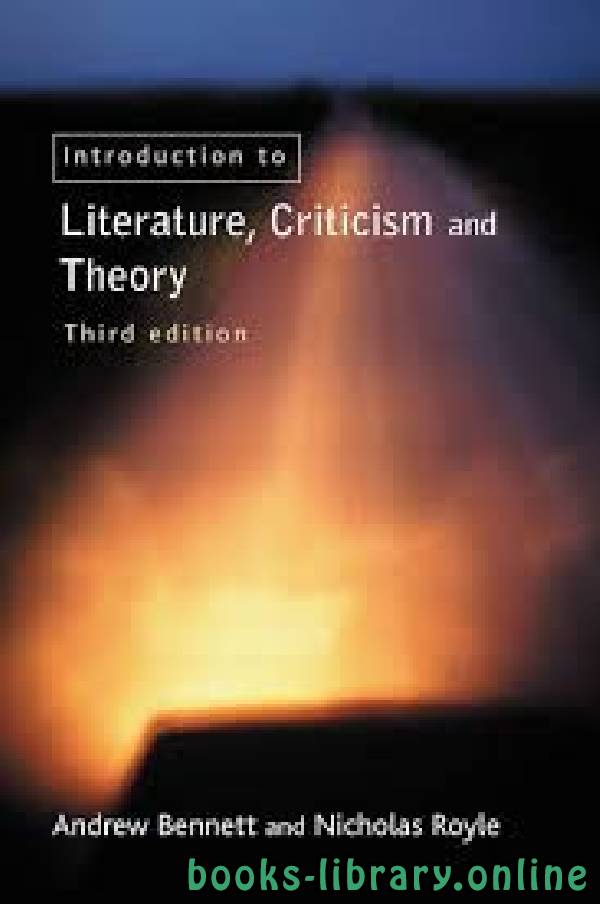
An_Introduction_to_Literature__Criticism_and_Theory PDF
قراءة و تحميل كتاب An_Introduction_to_Literature__Criticism_and_Theory PDF مجانا
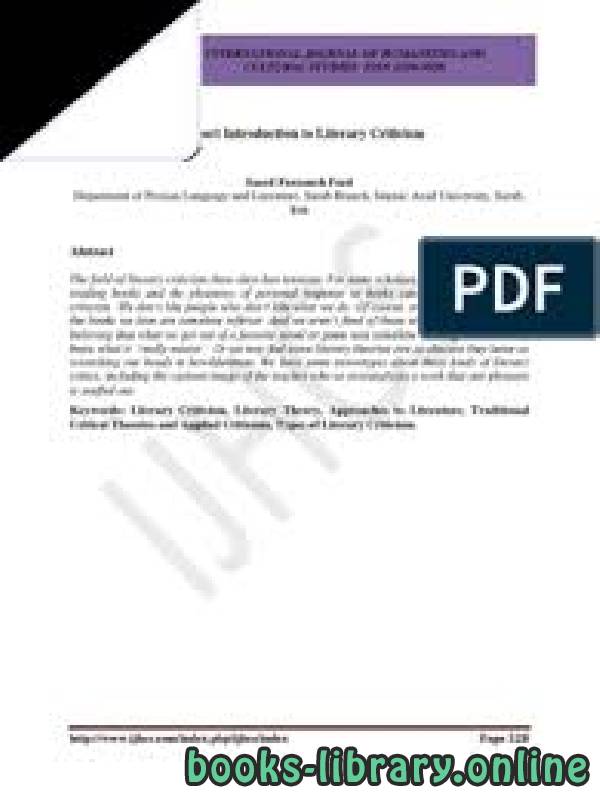
A Short Introduction to Literary Criticism PDF
قراءة و تحميل كتاب A Short Introduction to Literary Criticism PDF مجانا
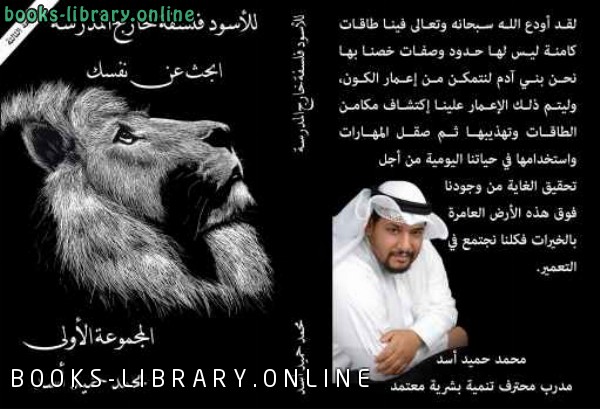
للأسود فلسفة خارج المدرسة ابحث عن نفسك PDF
قراءة و تحميل كتاب للأسود فلسفة خارج المدرسة ابحث عن نفسك PDF مجانا
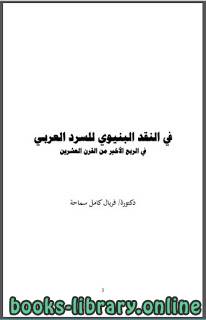
في النقد البنيوي للسرد العربي في الربع الأخير من القرن العشرين PDF
قراءة و تحميل كتاب في النقد البنيوي للسرد العربي في الربع الأخير من القرن العشرين PDF مجانا
